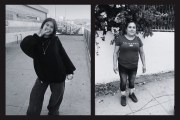At 4 a.m. on December 31, Jocelyn Cazares Willingham sat in her parents’ home in Los Angeles, working to finalize a request to release one of her clients from immigration detention, where he had been held since August.
She understood that his chances grew thinner as President Donald Trump’s second term drew closer. Cazares Willingham fired off the email later that afternoon, with more than 100 pages of careful documentation. The client had a lot going for him, she said, and in any “regular, fair system,” he would be released.
“He has been in this country for many, many years. He has a thriving business. He ran his own little charity where he would send resources out to Mexico and Central American countries. He’s married to someone with [legal] status. He has U.S. citizen children,” she told The 19th.
By the time she heard back on February 18, Trump had been in office for nearly a month. The response she received from Immigration and Customs Enforcement (ICE) signaled a larger political shift happening throughout the country: The field office would notify her if the agency decided to release her client. Over the months that followed, Cazares Willingham received calls from her client in detention almost daily. She also touched base with his family members every couple of weeks, with no updates to give them hope.
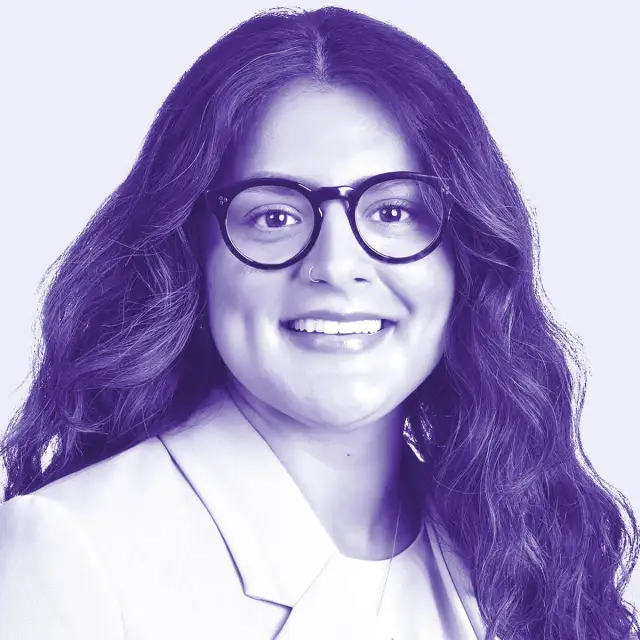
(Courtesy Jocelyn Cazares Willingham)
Cazares Willingham has worked in immigration law since 2017, and she’s now co-director of the Immigration & Human Rights Clinic at the University of the District of Columbia. But the impact of her cases extends beyond work.
As an L.A. native raised by two immigrants from Mexico, the stories she hears from clients evoke memories of the streets she grew up on: mixed-status, or undocumented households fearful of any interactions with the government, and the pain on family members’ faces when they could not visit parents back in their home countries.
“I knew if I went into that line of work that it would be very encompassing of my entire life, and it’d be really hard for me to have private and public spheres, or professional and private spheres that didn’t bleed into each other constantly,” she said.
An estimated 6 percent of lawyers in the United States are Hispanic and 41 percent are women — though they make up a larger share of the country’s immigration lawyers. Women represented 60 percent of respondents to a recent membership survey by the American Immigration Lawyers Association, which has more than 17,000 members.
Like Cazares Willingham, many of them enter the profession with personal connections to the issue, either as the children of immigrants or as immigrants themselves.
-
Read Next:
In its first six months, the second Trump administration has taken 362 immigration policy actions, according to the Immigration Policy Tracking Project, underscoring his pledge to stifle U.S.-Mexico border entry and to deport millions of immigrants this year. In 2017, the database logged 164 immigration actions from Trump’s first administration over the entire year.
Women immigration lawyers who spoke with The 19th described their experiences standing on the fault line of an issue ripping apart families and neighborhoods around the country. It’s a near constant stream of phone calls, appointments and questions from immigrants living in fear, even those with legal status in the country. Some of those individuals also happen to be their own parents, friends or neighbors.
“I started off my career under the first Trump administration, and I cut my teeth with all of the harmful policies that came out of that first administration,” Cazares Willingham said. “This second one — even in the few months we have been into it — is significantly worse and destructive.”
This work just basically brought together my own passions.”
Rochelle Fortier Nwadibia
Immigration law is not considered a caregiving profession in the way that society largely views fields like nursing, child care and home health aides, where women are also overrepresented. But the point in the Venn diagram where these roles overlap with immigration law offers some insight on what draws women to this work: a combination of societal gender expectations that view women as more nurturing and empathetic, as well as women’s own personal values that guide their career choices.
“I think of all the areas of law, immigration is one of those that is very much a hands-on, helping profession,” said Jacqueline Watson, a founding partner of JLW Immigration Law Group in Austin, Texas. “But it’s also helping a sinking boat. Like, you’re just trying to balance all of this, and everybody has lives. My law partner has four school-age children. But she does it. We’re drawn to the challenge as well as the reward.”
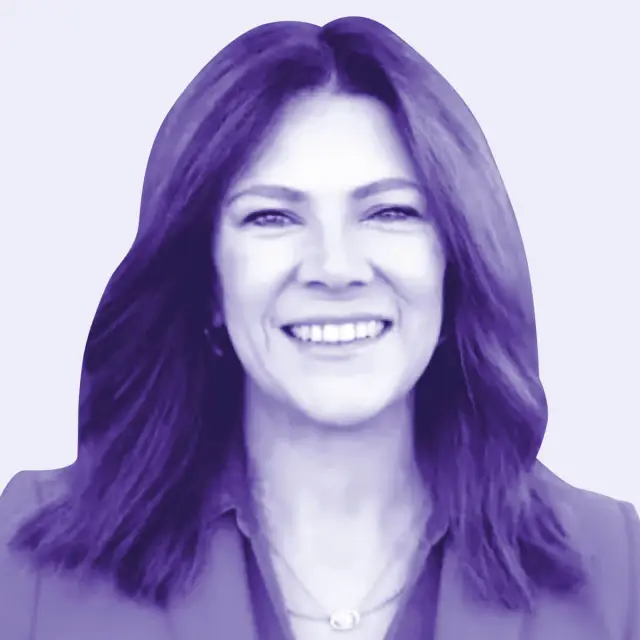
(Courtesy Jacqueline Watson)
A study published in February by researchers at Columbia Business School found that “women valued meaning at work, particularly meaning derived from the social impact of their jobs, more than men did.” Women were more likely to value work that is helpful to others or useful to society.
Rochelle Fortier Nwadibia, who runs a practice in San Francisco focused on refugees and asylum seekers, said becoming a lawyer was an “afterthought” for her.
“I came up under the era of Jimmy Carter. When I was in graduate school, he was encouraging people to go into human rights work,” Fortier Nwadibia said. “This work just basically brought together my own passions: my passion for following what’s going on in the world, and as a lawyer, my ability to help people around the world that are trying to live better lives.”
One of the biggest cases of her career came early on with Mohammed v. Gonzales in 2005, which helped to expand women’s ability to cite female genital mutilation as an asylum claim.
Fortier Nwadibia’s client, Khadija Mohammed, first applied for asylum in the United States when she was 17. Government reports at the time indicated that more than 95 percent of women in Mohammed’s home country of Somalia experienced female genital mutilation. The United States initially denied Mohammed’s asylum application, so she changed her legal representation and appealed. The Ninth Circuit Court of Appeals ruled that Mohammed and others who were previously subjected to forms of gender-based violence had a well-founded fear of future persecution and were therefore eligible to receive asylum.
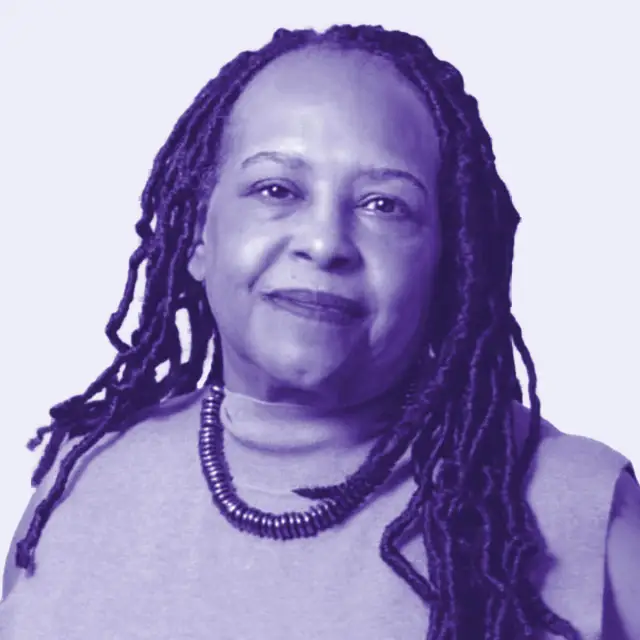
(Courtesy Rochelle Fortier Nwadibia)
As both a lawyer and a Black woman in America, Fortier Nwadibia roots much of her work in a historical understanding of the ways the country’s leaders have used immigration as a tool to assign value to specific groups of people, she said. Each of her cases offers her a chance to shape international law and to expand protections and safety groups like Black women, who are often overlooked.
“It’s not a game. It’s people’s lives,” she said. “Many people don’t come here because they just want to be here. They come with the same belief and expectations of a better life for themselves and for their families.”
Luana Morine was 6 years old when she and her mother came to the United States from Brazil on a tourist visa and stayed, leaving behind a life of economic hardship and instability.
For their first year in their new country, Morine and her mom rented the attic of a townhouse in Lowell, Massachusetts, where they slept on a single blowup mattress they sometimes had to refill in the middle of the night. Morine’s mom worked long hours as a hair stylist, for a boss who weaponized immigration enforcement to control employees, Morine said. Then, her mother endured an abusive marriage to a U.S. citizen for seven years. He would demand that Morine and her mother speak only English in the house and would threaten them with deportation when he got angry.
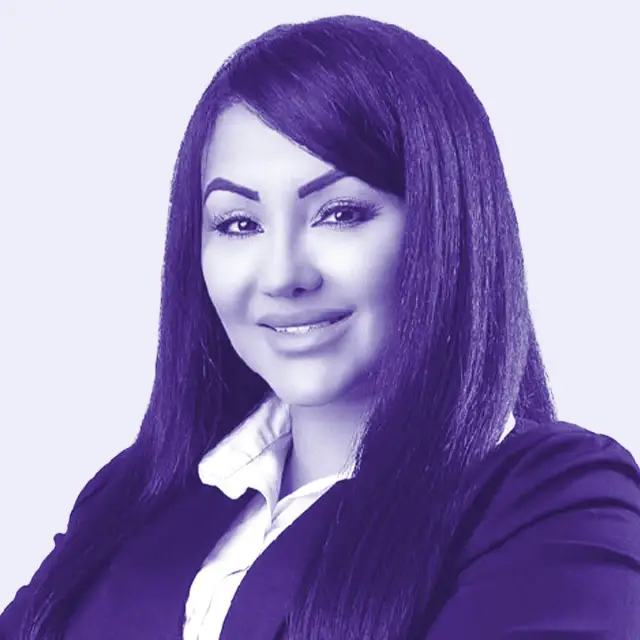
(Courtesy Luana Morine)
“Eventually she grew the courage to divorce. Finally, after seven years, she had the courage to consult with a local attorney, and he held her hand and said, ‘Listen, you don’t have to stay in this abusive marriage. You are protected. The law protects you and your children,’” Morine said.
These experiences shaped the foundation for Morine’s legal work, which she started earlier than most. At age 15, Morine secured an interview with a veteran immigration lawyer and sold her skillset: She was fluent in English, Portuguese and Spanish. She already had experience helping the women who came into her mother’s hair salon with immigration paperwork.
The attorney hired her. Since then, she has worked to be the kind of lawyer she wishes her mom had been able to contact earlier on.
“I wish that we had easier access to attorneys. Had we had this access, had we been educated previously, it would have reduced our suffering and pain as immigrants in this country,” Morine said. “That’s why today, throughout my consultations, I’m not just there to try to sell a possible strategy or a case. I actually try to educate my clients. Regardless of whether this client — the single mom, the hard-working dad — is going to hire me or not. I think that knowledge is power.”
You can never settle into what you think you know in immigration law.”
Jacqueline Watson
Immigration law is “punk rock.”
It is fast-paced, unpredictable and, at its best, it pushes back against the status quo and helps “salt-of-the-earth” people, said Watson, the attorney based in Austin.
But a more common description of immigration law is the “wild west.” Immigration courts are considered administrative and are overseen by the executive branch, rather than the courts that fall under the U.S. judicial system. This means that the procedures and rules of evidence that guide other courts are often poorly defined and applied inconsistently in immigration courts. Each presidential administration has significant power to shape those processes, and the immigration judges largely come from backgrounds as prosecutors, immigration officials or military personnel, setting a more adversarial tone for immigrants who enter courtrooms.
“We have to be on our toes for each and every single case. Not only does every single case bring to you a different set of circumstances and complications, but you can also have two similar cases, but because you have two different adjudicators, they go different ways,” Watson said. “You can never settle into what you think you know in immigration law.”
-
Read Next:
There have been few substantive changes to the immigration system over the last 40 years, lawyers said. It varies in degrees of dysfunction and impact, with a few standout moments. Those include President Bill Clinton’s expansion of border control and penalties for immigration violations in the late 1990s and the expanded surveillance and changes to visa processing following 9/11. And then, there’s Trump.
Ava Benach is a founding partner of Benach Pitney Reilly Immigration, a firm in Washington, D.C., known for its work advocating on behalf of LGBTQ+ migrants. She got her start working in law in the late 1990s and has seen the ebb and flow of policy changes over several decades. These last six months felt like “drinking from a fire hose,” she said. She has an entirely new line of clients who are already permanent residents or citizens, but book consultations with her to better understand what the wave of new policies mean for them.

(Courtesy Ava Benach)
Clients wonder if they can travel out of the country, whether their political activities or tattoos could get them labelled as terrorists, or how their transgender daughter could be treated if her passport gender marks her as “male.” The question about gender markers in particular “is just something new. It’s something I’ve never done before,” Benach said. “That’s not immigration. But there’s no expert on it. So, I spent a few dozen hours researching and thinking about this thing. So, I guess I’m the expert now.”
Recently, Benach worked with a gay client from Uganda to secure legal protections known as a “withholding of removal,” which allows a vulnerable migrant to avoid being deported to specific countries where they could face persecution and violence. Benach has previously worked with LGBTQ+ clients who seek safety in the United States because of the dangers they face abroad. But in the current political climate — one where the Trump administration arrests people following the routine immigration processes and deports them to countries without a hearing — Benach has advised her Ugandan client to carry a letter listing the 47 countries where he could face danger as a gay man.
Despite the flood of new information and clients, Benach manages her cases without taking on the emotional toll, she said, though she believes this is more “predisposition” than something she has to actively work on. Other lawyers described periods of feeling overwhelmed or depressed.
For Yasmin Voglewede, who runs Elvora Law Firm in San Antonio, Texas, that anxiety often meant constantly checking emails and social media to ensure she’s up to date on the latest policy changes. Her mother, a U.S. citizen from Mexico, has begged her not to post anything about Trump on Facebook. She warned Voglewede that Trump could come after them.
“My mom has an accent. My mom has slightly darker skin than me, and some idiot out there could detain her if he wanted to, even though she’s a citizen,” Voglewede said. “They could make her life miserable and she’s in her 70s. I don’t want my mom being mistreated that way, but there’s a legitimate reason to be afraid of that.”
-
Read Next:
When it comes to work, Voglewede and other lawyers said the chaos leaves them uncertain of how to advise their clients. For example, in April, the Trump administration announced it would strictly enforce an existing law requiring certain noncitizens to register with the U.S. government. Voglewede said she has heard from other lawyers about clients registering and receiving letters that they will be fined tens of thousands of dollars for overstaying their visas.
After considering for some time, Voglewede decided that she will inform people about the registration requirement but will not help them register as part of her services. She didn’t want to contribute to the surveillance or possible arrests.
“We as attorneys know that the reason they want immigrants to register is because they want to know where they are,” she said. “We all know that they want to use that as an excuse to go and detain people and deport them.”
I know that I’m gonna wake up and I’m gonna speak for somebody who can’t speak for themselves.”
Michelle Saenz-Rodriguez
One Tuesday in late April, Michelle Saenz-Rodriguez woke up at her usual time of 4:45 a.m.Her phone was already pinging with texts. The messages concerned an international student at the University of Texas whose family worried that she might not be able to reenter the United States if she visited her home country.
Saenz-Rodriguez answered the questions she could and then poured herself a cup of coffee.
On the way to the Dallas law firm she co-founded with her husband, Saenz-Rodriguez & Associates, she received another emergency call. Someone had been detained while trying to enter the country and wanted to know if there was anything she could do to help.
At the office, people were already waiting for her. Tuesdays are Saenz-Rodriguez’s consultation days, so she usually schedules four appointments in the morning and four in the afternoon. She sat in on a separate meeting during her lunch hour and between consultations, and later worked on a proposal for a company seeking her expertise on employee immigration questions.
At the end of her office day, around 6 p.m., Saenz-Rodriguez picked up some food, headed home to the farm she shares with her husband and decompressed while feeding their chickens, goats and horses. After the break, she worked until 10 p.m. resolving company expenses for 2024. In addition to being the firm’s co-founder, she is also the bookkeeper.
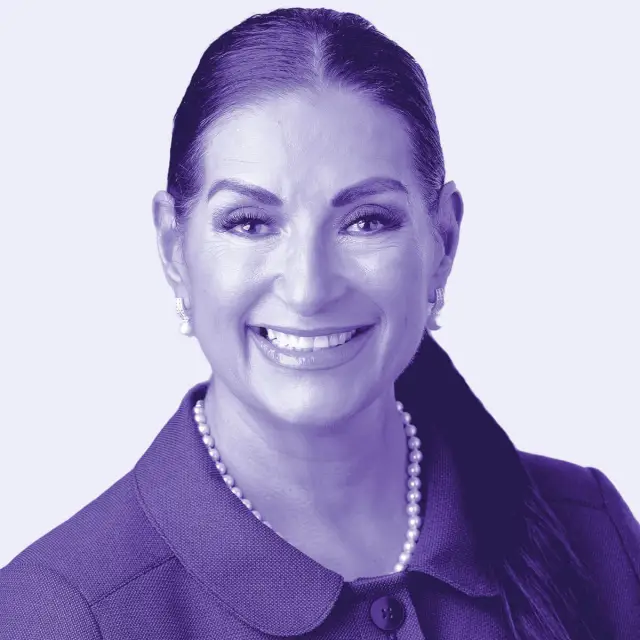
(Courtesy Michelle Saenz-Rodriguez)
Working 13-hour days is common for Saenz-Rodriguez, but she loves her work. Saenz-Rodriguez grew up about seven miles from the border in Weslaco, Texas, and spent her childhood largely “oblivious” to the practices of immigration enforcement, she said. Everyone knew someone who was a border patrol officer or worked at the checkpoints. It was a normal part of life. Now, sitting on the legal side of things, Saenz-Rodriguez relishes in the ability to help people.
“I know that I’m gonna wake up and I’m gonna speak for somebody who can’t speak for themselves,” she said. “Even if I play a little part in resisting somebody losing their family or their place here, I know it’s gonna make a difference.”
There’s a lot during the Trump administration that feels out of her control. Just two weeks prior, she had taken the case of a green card holder held by ICE for about four hours before his eventual release. That day, armed immigration agents and local police stormed a family-owned cabinet-making shop in North Texas, removing and zip-tying the store’s 15 employees. Nine of the people, including her client, were eventually let go. The store owners and her client’s two brothers remain detained.
“It makes me angry,” Saenz-Rodriguez said. “My client is traumatized. He can’t even speak about it because of the way they were treated. He came home with scratches. He said, ‘They threw us on the floor.’ He said it was ‘awful, awful, awful, awful’ the way we were treated.”
During a time filled with difficult moments, Saenz-Rodriguez said she focuses on taking things day by day and doing what she can for her community. In addition to juggling her firm’s business, she also regularly leads training for other legal professionals and events aimed at public awareness about immigration laws and policies. She’s a self-identified workaholic, but a key part of doing the work is self-preservation, she said.
She loves the stillness of the early morning hours before sunrise. It’s the time she uses to meditate and reflect, she said. As dawn breaks over North Texas and her chickens crow, Saenz-Rodriguez turns to the next slate of messages on her phone and gets to work.
Great Job Candice Norwood & the Team @ The 19th Source link for sharing this story.



